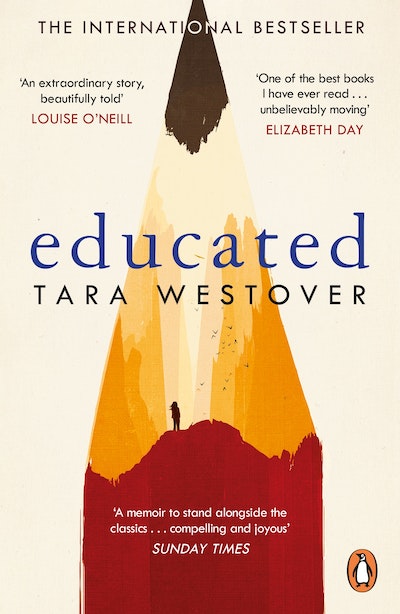- Published: 19 November 2018
- ISBN: 9780099511021
- Imprint: Windmill Books
- Format: Paperback
- Pages: 400
- RRP: $26.99
Educated
The international bestselling memoir
Extract
Dad worries that the Government will force us to go but it can’t, because it doesn’t know about us. Four of my parents’ seven children don’t have birth certificates. We have no medical records because we were born at home and have never seen a doctor or nurse.1 We have no school records because we’ve never set foot in a classroom. When I am nine, I will be issued a Delayed Certificate of Birth, but at this moment, according to the state of Idaho and the federal government, I do not exist.
Of course I did exist. I had grown up preparing for the Days of Abomination, watching for the sun to darken, for the moon to drip as if with blood. I spent my summers bottling peaches and my winters rotating supplies. When the World of Men failed, my family would continue on, unaffected.
I had been educated in the rhythms of the mountain, rhythms in which change was never fundamental, only cyclical. The same sun appeared each morning, swept over the valley and dropped behind the peak. The snows that fell in winter always melted in the spring. Our lives were a cycle— the cycle of the day, the cycle of the seasons—circles of perpetual change that, when complete, meant nothing had changed at all. I believed my family was a part of this immortal pattern, that we were, in some sense, eternal. But eternity belonged only to the mountain.
There’s a story my father used to tell about the peak. She was a grand old thing, a cathedral of a mountain. The range had other mountains, taller, more imposing, but Buck’s Peak was the most finely crafted. Its base spanned a mile, its dark form swelling out of the earth and rising into a flawless spire. From a distance, you could see the impression of a woman’s body on the mountain face: her legs formed of huge ravines, her hair a spray of pines fanning over the northern ridge. Her stance was commanding, one leg thrust forward in a powerful movement, more stride than step.
My father called her the Indian Princess. She emerged each year when the snows began to melt, facing south, watching the buffalo return to the valley. Dad said the nomadic Indians had watched for her appearance as a sign of spring, a signal the mountain was thawing, winter was over, and it was time to come home.
All my father’s stories were about our mountain, our valley, our jagged little patch of Idaho. He never told me what to do if I left the mountain, if I crossed oceans and continents and found myself in strange terrain, where I could no longer search the horizon for the Princess. He never told me how I’d know when it was time to come home.
1 p. 2 Except for my sister Audrey, who broke an arm and a leg when she was young. She was taken to get a cast.
Educated Tara Westover
The multi-million copy bestseller and an extraordinary memoir about the transformative power of education
Buy now